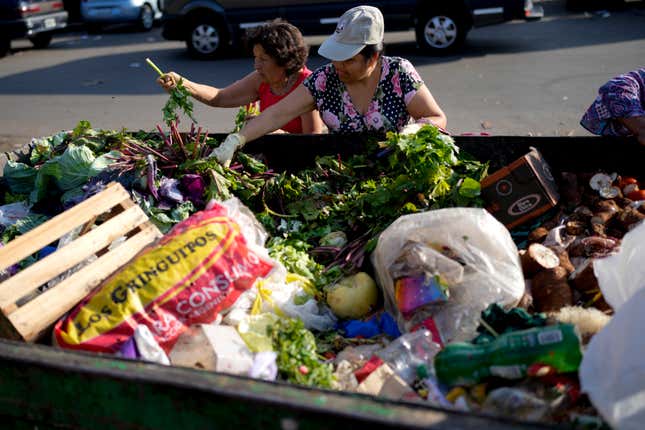
BUENOS AIRES, Argentina (AP) — Argentina's annual inflation soared to 211.4% in 2023, the highest rate in 32 years, according to figures released Thursday by the government’s INDEC statistics agency.
The data reflects the strong impact of a series of shock measures, including a 50% devaluation of the nation's currency, implemented by right-wing President Javier Milei in hopes of eventually bringing the country's roaring inflation under control.
The annual inflation compared with about 95% in 2022. The country’s monthly inflation stood at 25.5% in December, up from 12.8% in November, but slightly below the 30% the government had forecast.
Milei had said in an interview with a Buenos Aires radio station before the figures were released that if the monthly inflation rate came in below the forecast, that would be an accomplishment.
“If the number is closer to 25%, it means that the success was tremendous,” Milei said.
In his inauguration speech, Milei announced a painful adjustment plan aimed at staving off hyperinflation and warned that the measures would initially have a “negative impact on the level of activity, employment, real wages, and the number of poor and indigent people.”
It is estimated that around 40% of the population live in poverty.
Milei said in the interview that once the macroeconomic variables stabilize, he will then dollarize the economy.
Food and non-alcoholic beverages, the biggest contributors to the annual inflation rate, saw an average increase of 29.7% in December, according to INDEC. Other products for mass consumption rose around 30%, while medications had average increases of 40%.
Consultancy Eco Go warns of a slight slowdown in food prices in the first days of January and is projecting a monthly increase in the cost of living of less than the 23% in December.
“There is still a process of rearrangement of relative prices,” Milei said on Thursday. “We are going to continue to see a period of inflation with horrible numbers, but then we’ll see that the next step will be the fall of inflation.”
____
Associated Press correspondent Almudena Calatrava in Buenos Aires contributed to this report.
____
Follow AP’s coverage of Latin America and the Caribbean at https://apnews.com/hub/latin-america